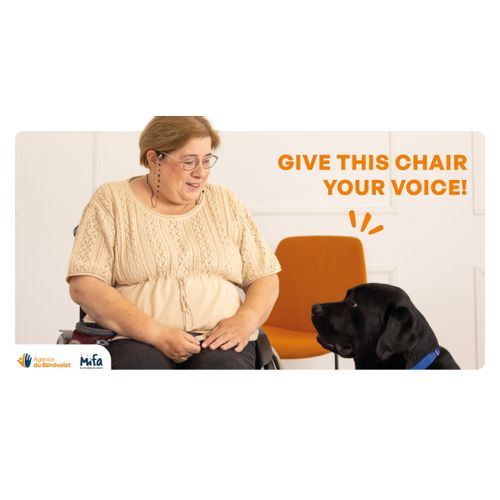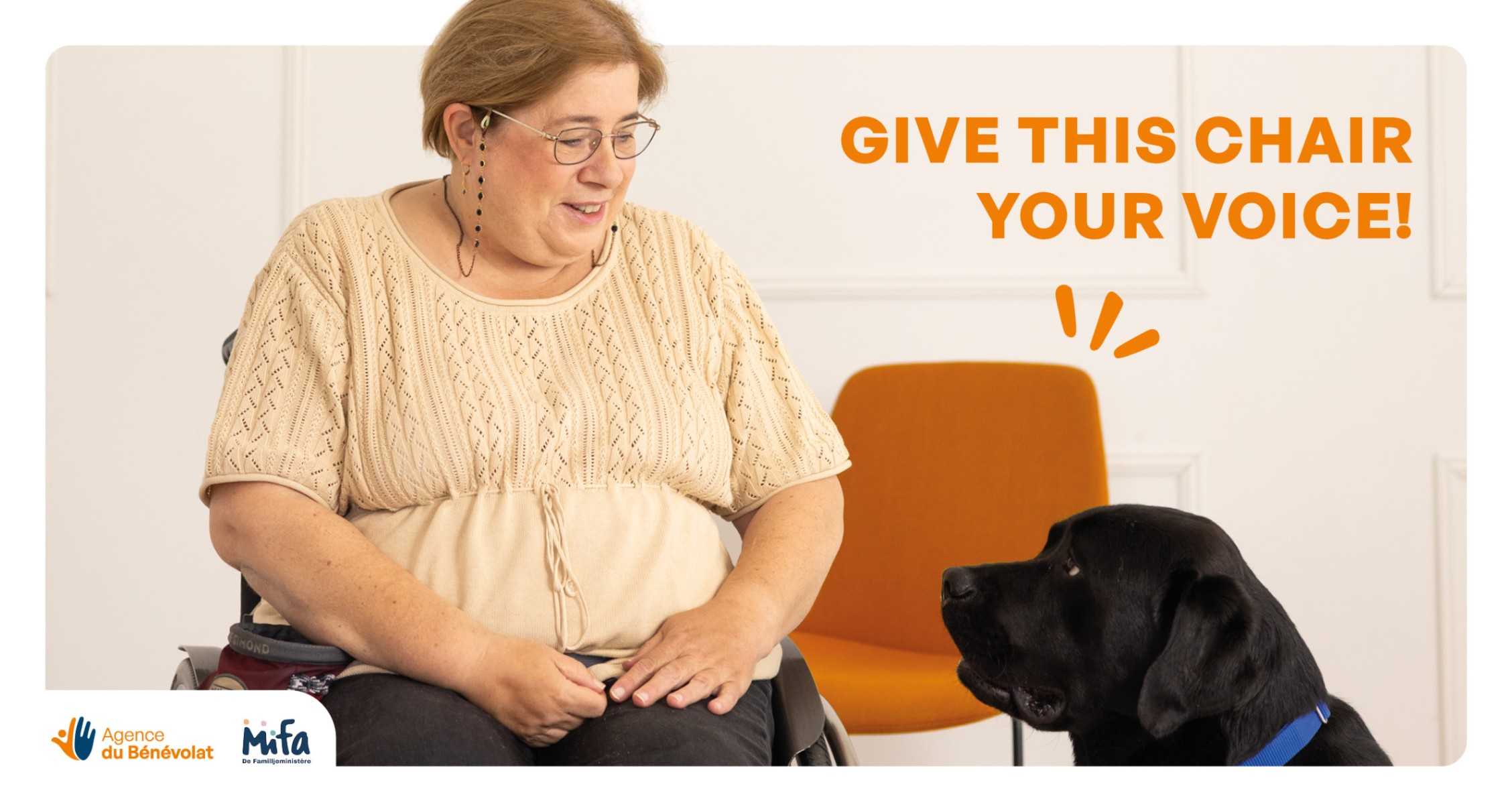Interested in joining a board or learning how to get involved?
LuxembourgPosted on 01 November 2025 by Team · 4 min readA seat that gives voice to everyone
How Andrée Biltgen shows that leadership is not about power, but about inclusion
When you first meet Andrée Biltgen, what strikes you isn’t her wheelchair ; it’s her calm authority. She speaks with the quiet assurance of someone who has spent years listening, debating, and shaping ideas around the same table as everyone else.
For over three decades, Andrée has been one of the key figures of Luxembourg’s associative world. She currently sits on the boards of RANA and Info-Handicap, two organisations that promote inclusion, autonomy, and equal opportunities for people with disabilities. But ask her what her role really means, and she’ll tell you that it’s not about representation ; it’s about participation.
“Being on a board isn’t about speaking for others,” she says. “It’s about speaking with them. That’s how real change begins.”
From experience to influence
Andrée’s story is not one of personal challenge. It’s a story of governance.
She has spent years making sure that those who are directly affected by decisions can also help shape them. For her, a board of directors is not a formality ; it’s a space where power becomes shared responsibility.
Over time, she’s seen how a well-functioning board can transform an organisation from within. “When people with different backgrounds and perspectives work together, you make better decisions,” she explains. “It’s not always easy, but that’s what democracy looks like on a small scale.”
Her contribution is both strategic and human. She ensures that the structures she serves remain anchored in reality ; that every decision taken in the meeting room connects back to the people it affects outside of it.
Changing perceptions, one meeting at a time
Many people still imagine that board work is administrative, dry, or inaccessible. Andrée disagrees.
“In every association, the board is where things start to move,” she says. “It’s where you decide what projects deserve support, how to use your resources, how to grow responsibly. It’s where action becomes vision.”
Her own experience has shown her that sitting at the table changes everything ; not only for her, but for everyone watching. “When people see someone like me taking part in decisions, it breaks the idea that you need to fit a certain profile. You just need to care and to commit.”
That’s why she believes the DËST ASS VILL MÉI WÉI JUST E STULL! campaign matters. The campaign, led by the Agence du Bénévolat with the support of the Ministry of Family Affairs, Solidarity, Living Together and Reception of Refugees, aims to encourage citizens to take part in associative governance ; to fill those empty seats that could bring new ideas and voices to the table.
“Every empty chair in a boardroom,” Andrée says, “is a missed opportunity for society to hear something new.”
What inclusion really means
Inclusion is often spoken about as a goal. For Andrée, it’s a practice ; something that happens in small, consistent gestures. It’s not about tokenism or quotas; it’s about normalising the presence of diversity in leadership.
In her own work, she’s seen how a diverse board can strengthen an organisation’s resilience. “You build trust,” she says. “When people see that decisions are made by those who truly understand the issues, they believe in the process.”
For her, inclusion and engagement are two sides of the same coin: you can’t have one without the other.
“It’s not about charity or goodwill,” she adds. “It’s about democracy. Everyone should have a say.”
Leadership through listening
Andrée’s approach to leadership is quiet, but firm. She doesn’t dominate discussions; she anchors them. She sees her role as one of balance ; ensuring that voices aren’t lost in the noise, that principles stay clear, and that progress doesn’t come at the expense of fairness.
Her advice to anyone thinking of joining a board?
“Don’t overthink it. You don’t need to be an expert. You just need to be ready to learn and to listen. That’s where leadership begins.”
A chair, a choice, a change
For Andrée, a chair isn’t just a piece of furniture. It’s a statement of belonging.
Sitting down at the table is a way to say: I’m part of this. I care. I want to help shape what comes next.
Her message resonates far beyond her associations. It speaks to anyone who’s ever wondered if they’re “qualified” to get involved.
Because the truth is, governance isn’t reserved for a few ; it’s built by those who show up.
So next time you see an empty chair in an association, think of what it represents.
Not a gap, but a possibility.
Every council, every committee, every association needs voices like Andrée’s ; steady, thoughtful, grounded in experience.
Not to speak for others, but to make sure that everyone gets to speak.
Visit : benevolat.lu
Campaign: https://bit.ly/campagneadb2025
I am your contact
Team
Chat








